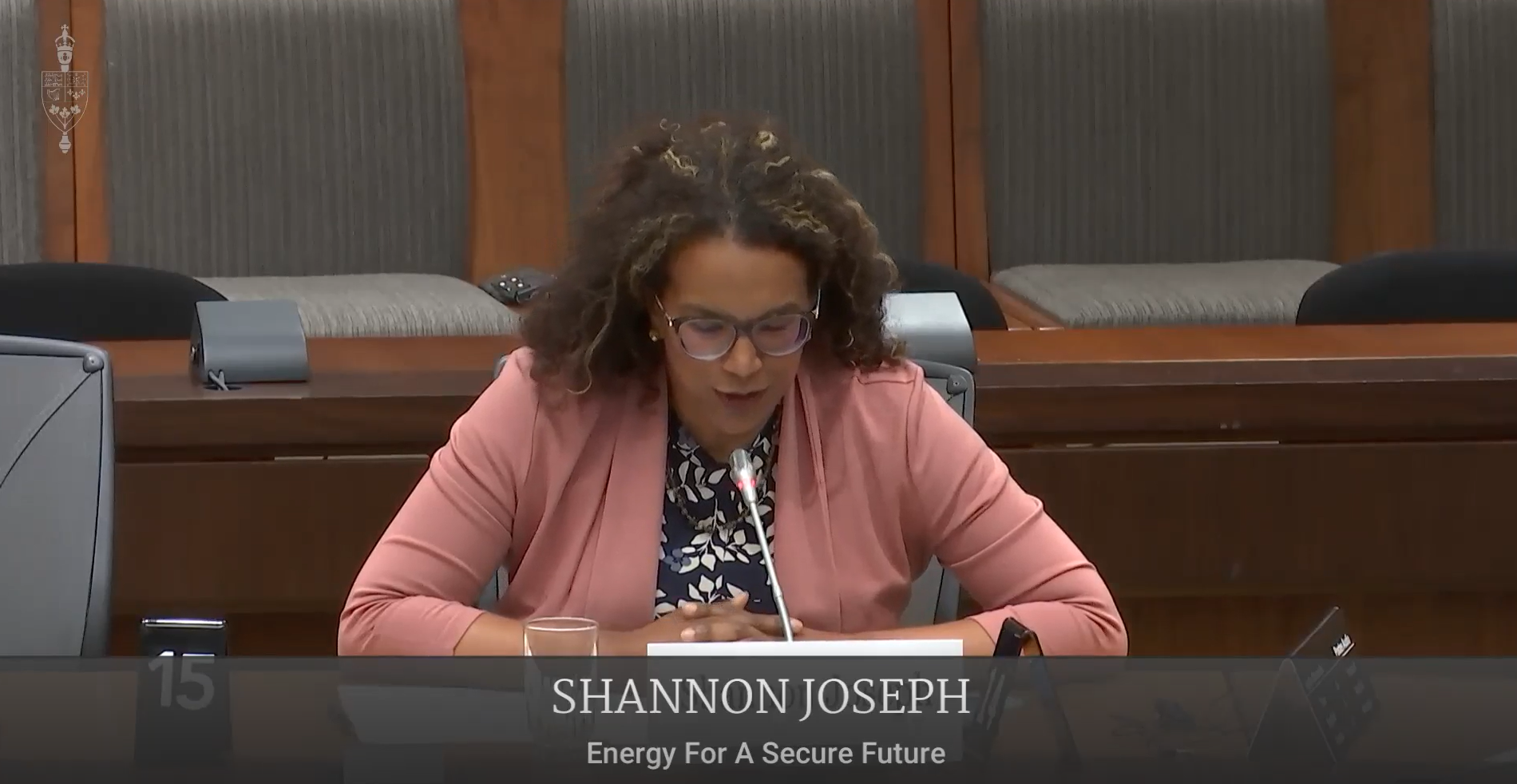On September 25, 2024, ESF Chair, Shannon Joseph, appeared before the House of Commons Standing Committee on Natural Resources to discuss Canada’s Electricity Grid and Network. She referenced key findings from ESF’s 2024 report, Getting Canada’s Energy Future Right, which included insights on:
- Canada’s framework for energy policies: Canada must balance three key factors—energy fundamentals (affordability, reliability, safety, security, and resilience), social acceptability, and environmental goals. Many climate policies fail due to insufficient focus on these fundamentals.
- Canada’s current energy mix: currently, electricity only provides 22% of stationary energy use in Canada. The report highlights the challenges and high costs of replacing up to 80% of currently used energy in Canada with the CER’s combination of new electricity, new fuels and elimination of demand (15%).
- Canada’s energy use in industry: over two-thirds of end-use energy consumption in Canada’s is industrial, including manufacturing, agriculture, mining, etc., comes primarily from natural gas and petroleum products. Even in the CER net-zero scenarios these energy sources will remain dominant in industrial sectors.
The reference to the report called for a realistic and balanced approach to address these challenges, which includes:
- Increase electricity production first: before considering a transition from traditional energy sources, Canada must focus on producing more electricity. Current levels are insufficient, and expanding capacity must be prioritized.
- Leverage existing infrastructure: utilizing the country’s extensive natural gas infrastructure and integrating carbon capture technologies can reduce emissions while managing costs, allowing for more time to develop new energy systems and ensuring energy security.
- Focus on emissions reduction: Instead of targeting specific energy sources for elimination, the focus should be on reducing emissions across the board.
The testimony urged policymakers to address the energy trilemma—balancing energy fundamentals, social acceptability, and environmental goals—while ensuring affordability for both households and businesses.

Shannon Joseph is the Chair of Energy for a Secure Future, a non-partisan civil society initiative that brings together Indigenous peoples, business leaders, organizations, and other Canadian experts in a new conversation about energy and building a secure future for Canada and our allies around the world.
